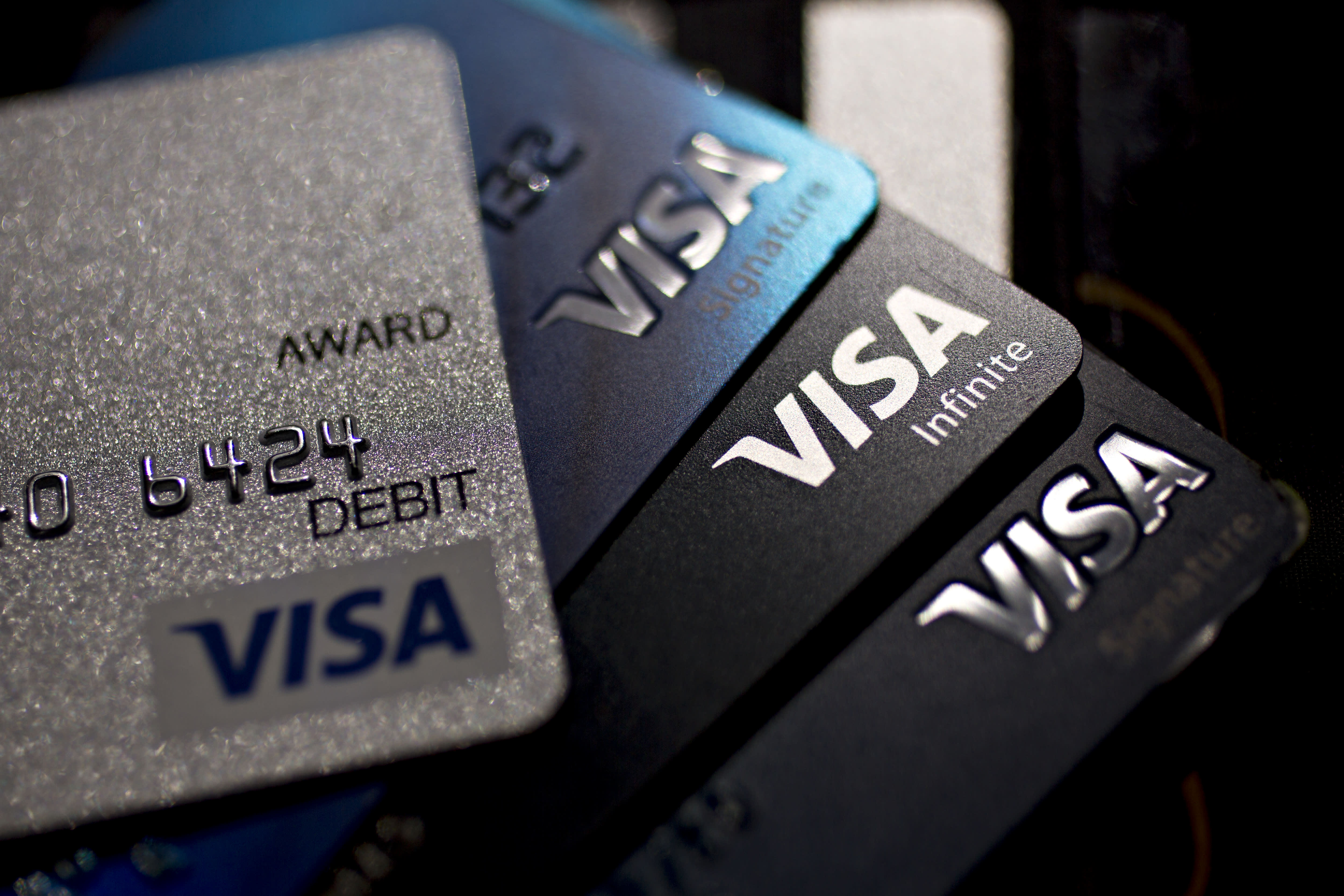UnitedHealth Group signage is displayed on a monitor on the floor of the New York Stock Exchange.
Michael Nagle | Bloomberg | Getty Images
Insurer UnitedHealth is Wall Street analysts’ favorite stock based on highest percentage of buy ratings.
In addition to the Minnesota-based healthcare company, financial services company Visa, technology giant Microsoft and pharmaceutical company Merck & Co. are all tied for second place.
CNBC used FactSet to screen all the Dow Jones Industrial Average companies looking for the stocks with the highest percentage of buy ratings compared with total ratings. FactSet gives each company a composite score based on its ratings by analysts.
Washington’s threat of “Medicare for All” getting passed has pressured shares of UnitedHealth, driving them negative for the year. But despite UnitedHealth being shut out of the Dow’s rally in the first half of 2019, analysts are optimistic about the healthcare company’s fundamentals.
“We spent two days with the leaders of healthcare innovator UNH and walked away more bullish on the LT growth trajectory, ability to disrupt the industry driving leading cost control and share gains, and achieve an unheard of 70 nps by 2025,” PiperJaffray’s Sarah James said in a recent note to clients.
UnitedHealth announced this week it was buying health-tech-startup PatientsLikeMe, which, amid a trade war with China, was forced by the Trump administration to find a buyer because its majority owner is Chinese.
Wells Fargo’s Peter Costa said the firm expects UnitedHealth to differentiate itself within healthcare “and stress its core competencies including data analytics, technology and clinical insights.”
Visa keeping up
Visa is the only most-loved stock in the financials sector, garnering 36 buy ratings. Visa’s stock has been on a tear, soaring nearly 30% so far this year.
Wedbush’s Moshe Katri said Visa is especially appealing because it’s safe from an economic slowdown, with 50% of its revenue base “generated from a combination of transaction fees and other ancillary services that are less dependent on economic activity,” said Katri.
Visa is adapting well and gaining significant share of the electronic payments business, he said.
“Strong secular tailwinds from the ongoing shift away from cash and checks to electronic payments continue to provide a reliable/consistent growth driver,” said Katri.
No tariff threat here
Athletic apparel giant Nike continues to be loved by Wall Street despite tensions between to the U.S. and China potentially weighing on the margins of the largest sneaker-maker in the U.S. Last month, President Donald Trump hiked tariffs on $200 billion worth of Chinese goods and China retaliated with tariffs on $60 billion worth of imports. Trump has also threatened more tariffs.
“While China tariff risk remains an overhang on the stock, we think NKE is increasingly well positioned to mitigate any potential impact,” Morgan Stanley said in a note to clients.
Nike shares, which have a market value of more than $130 billion, have rallied nearly 15% this year despite trade headwinds and on April 18 hit an all-time high of $90.
Susquehanna said Nike’s momentum remains exceptionally strong. “Digital prowess, a robust product pipeline, and improving speed-to-market capabilities should continue to drive…revenue growth and margin expansion for the foreseeable future,” the firm said.
CNBC also used FactSet to screen analysts’ least favorite stocks in the Dow Jones Industrial Average. FactSet gave a composite score of their analysts ratings and manufacturing company 3M ranked the least-liked stock in the Dow with only 4 buy ratings.
“Unjustified” valuation
Industrial products marker 3M is Wall Street analysts’ least favorite stock reflected by the fact that the stock is in bear territory, cratering more than 20% since its 52-week high in April.
JP Morgan’s Stephen Tusa is underweight on the stock citing “no growth, no defense, no multiple,” in a recent note.
After disappointing first-quarter earnings for the $99 million market value company in April, Tusa said 3M’s “premium valuation is unjustified by undifferentiated fundamentals,” with growth likely decelerating and tailwinds to margins fading.”
Trade bellwethers
Despite all being positive for the year, Intel, IBM and Apple also make up the lowest rated stocks in the Dow.
Technology stocks, specifically chip stocks, have suffered as a result of the trade war with China. Apple and Intel’s stock’s both fell more than 10% the week after the trade deal with China fell through in the beginning of May.
Chip-maker Intel slashed its forecast this quarter citing declining Chinese data center sales. Iphone-maker Apple, who’s market cap it more than $900 billion, is especially vulnerable because a large amount of it’s revenue comes from iPhone sales in China.
“China obviously remains very important to Apple and will likely be a drag to overall growth” this year, UBS said in a recent note to clients.
The financial sector also had three stocks in the list of Wall Street’s least favorite stocks, including Travelers, Goldman Sachs and American Express.
— with reporting from CNBC’s Michael Bloom
